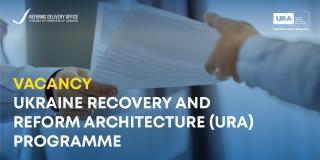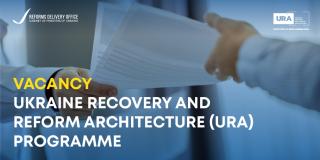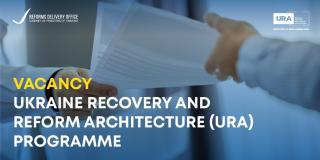On 24 November, the 15th meeting of the Steering Committee of the Ukraine Donor Platform took place in Kyiv. The Platform was created to coordinate international assistance, meet urgent needs and support the long-term recovery of Ukraine.
During the meeting, partners discussed the progress of reforms and the European integration process, budgetary support for Ukraine in 2026, the needs of the energy sector and reconstruction, veterans’ policy and the involvement of the private sector in rebuilding Ukraine.
The event was attended by Prime Minister of Ukraine Yulia Svyrydenko, Deputy Prime Minister for European and Euro-Atlantic Integration Taras Kachka, Deputy Prime Minister for Restoration and Minister for Communities and Territories Development Oleksii Kuleba, Minister of Economy, Environment and Agriculture Oleksii Sobolev, and Minister for Veterans Affairs Nataliia Kalmykova. The meeting was moderated by the Platform’s co-chair from Ukraine, Minister of Finance Sergii Marchenko. Also present were Director-General of the European Commission’s Directorate-General for Enlargement and Eastern Neighbourhood (DG ENEST) Gert Jan Koopman, Acting Coordinator of U.S. Assistance to Europe, Eurasia, and Central Asia at the U.S. Department of State Christopher Bergaust, representatives of the Platform member countries, the European Commission and international financial institutions. For the first time, Chrystia Freeland, Canada’s Special Representative for the Reconstruction of Ukraine, took part in the Steering Committee meeting.
Opening the meeting, Prime Minister Yulia Svyrydenko thanked the partners for their continued support of Ukraine. She stressed that the Ukraine Donor Platform has become an effective mechanism for coordinating budgetary support, reconstruction, the development of private investment and the implementation of reforms. “This year a meeting of this level is taking place in Kyiv for the second time, which is an important sign of our partners’ unity with Ukraine. I had the honour of thanking the countries participating in the platform for the financial assistance they provide to our state. We are working together to ensure decisions are taken on reparations loans and a new IMF programme for the next period,” Yulia Svyrydenko said.
Deputy Prime Minister for European and Euro-Atlantic Integration Taras Kachka stressed: “We have a clear goal – to complete all the necessary procedures by 2028 so that Ukraine is ready for EU membership. We have already passed the point of no return in reforms – especially in the rule of law and the fight against corruption. Only further progress lies ahead. Today our priority is to ensure the effective operation of the relevant institutions. Despite all the challenges, Ukraine’s anti-corruption and judicial systems continue to show results.”
He emphasised that the next two years will be decisive as Ukraine reboots the justice system, completes the reform of law enforcement agencies, strengthens corporate governance and aligns its energy and regional policies with EU standards. “These efforts are key to our European integration, and we remain fully committed to implementing the necessary reforms,” the Deputy Prime Minister said.
During the meeting, the Platform’s co-chair, Minister of Finance Sergii Marchenko, outlined the state of the financial system and the main needs for 2026. “The draft State Budget of Ukraine for 2026 provides for priority financing of the security and defence sector, which accounts for more than half of all expenditures. The need for international support next year to cover social expenditures will remain significant. With assurances already in place for part of the funds, additional support mechanisms are required. The reparations loan has the potential to become an important source of financing for social and defence expenditures. It will also be important for shaping a new IMF programme and maintaining Ukraine’s debt sustainability,” Sergii Marchenko said.
Deputy Prime Minister for Restoration and Minister for Communities and Territories Development Oleksii Kuleba, in his speech, emphasised that despite daily attacks on Ukrainian infrastructure – from railways and ports to energy facilities and residential areas – Ukraine continues reconstruction and reforms. “Our common duty now is to focus efforts on the front-line regions where the most has been destroyed and to provide people with basic living conditions. To accelerate reconstruction, we need predictable and transparent financing. That is why we call on partners to join the launch of the Recovery Fund, the creation of the Recovery Task Force and support for the State Agency for Restoration and Infrastructure Development. The reconstruction of Ukraine is not an expense – it is an investment in peace and security for the whole of Europe. We thank our partners for their constant support,” he said.
Minister of Economy, Environment and Agriculture Oleksii Sobolev thanked the Ukraine Donor Platform and all international partners for their systematic support and considerable efforts to attract private capital to Ukraine. “Together we are creating better conditions and expanding opportunities for this – combining budgetary support with investor protection instruments, creating war-risk insurance infrastructure, and forming project portfolios in privatisation and public-private partnerships,” he said. “The Business Advisory Council is an important link for us between the Government, donors and business, so joint active work to attract private capital to Ukraine is among our key cooperation priorities for 2026,” Oleksii Sobolev stressed.
Minister for Veterans Affairs Nataliia Kalmykova stressed that veterans are one of the key forces that can ensure the rapid and sustainable reconstruction of Ukraine. “Our task is to implement policies that will help veterans find their place in civilian life, return to the labour market, start businesses and create public organisations. We want the unique skills and experience gained during service to turn into successful civilian professions and own initiatives. This approach makes it possible not only to support veterans but also to develop communities, strengthen the economy and the state as a whole,” she emphasised.
More details in the Platform's news item.
Background
The Platform currently brings together 25 permanent and temporary members and observers, plus 7 participating international financial institutions and the OECD. The Steering Committee comprises senior officials from Ukraine, the G7 countries and the European Union, with international financial institutions taking an active role.
The Recovery and Reform Delivery Office of the Cabinet of Ministers of Ukraine* acts as the Kyiv office** of the Secretariat of the Ukraine Donor Platform, providing organisational, analytical, and communications support to the Platform.
*The Recovery and Reform Delivery Office is a part of the Ukraine Recovery and Reform Architecture (URA) programme. The Ukraine Recovery and Reform Architecture is a comprehensive technical assistance programme deployed by the European Bank for Reconstruction and Development (EBRD), in partnership with the European Union, to support critical recovery and reform processes in Ukraine. URA is implemented with the financial assistance of the EBRD-Ukraine Stabilisation and Sustainable Growth Multi-Donor Account (MDA), contributors to which are Austria, Denmark, Finland, France, Germany, Italy, Japan, Latvia, the Netherlands, Norway, Poland, Slovenia, Sweden, Switzerland, the United Kingdom, the United States, and the European Union.
**Kyiv office of the Secretariat of the Ukraine Donor Platform is funded by the European Union through a program administered by the Ukraine Recovery and Architecture programme deployed by the European Bank for Reconstruction and Development (EBRD).



